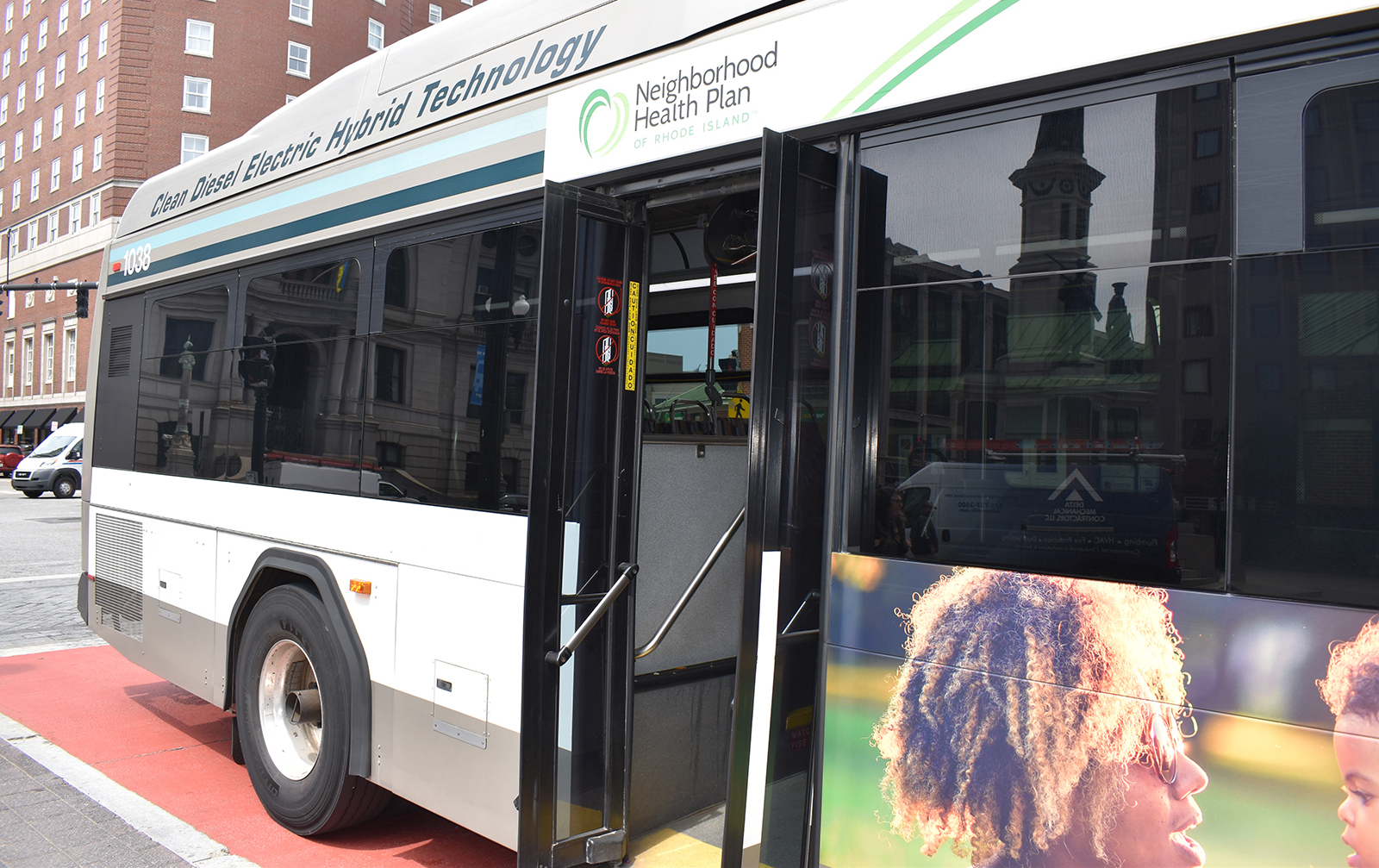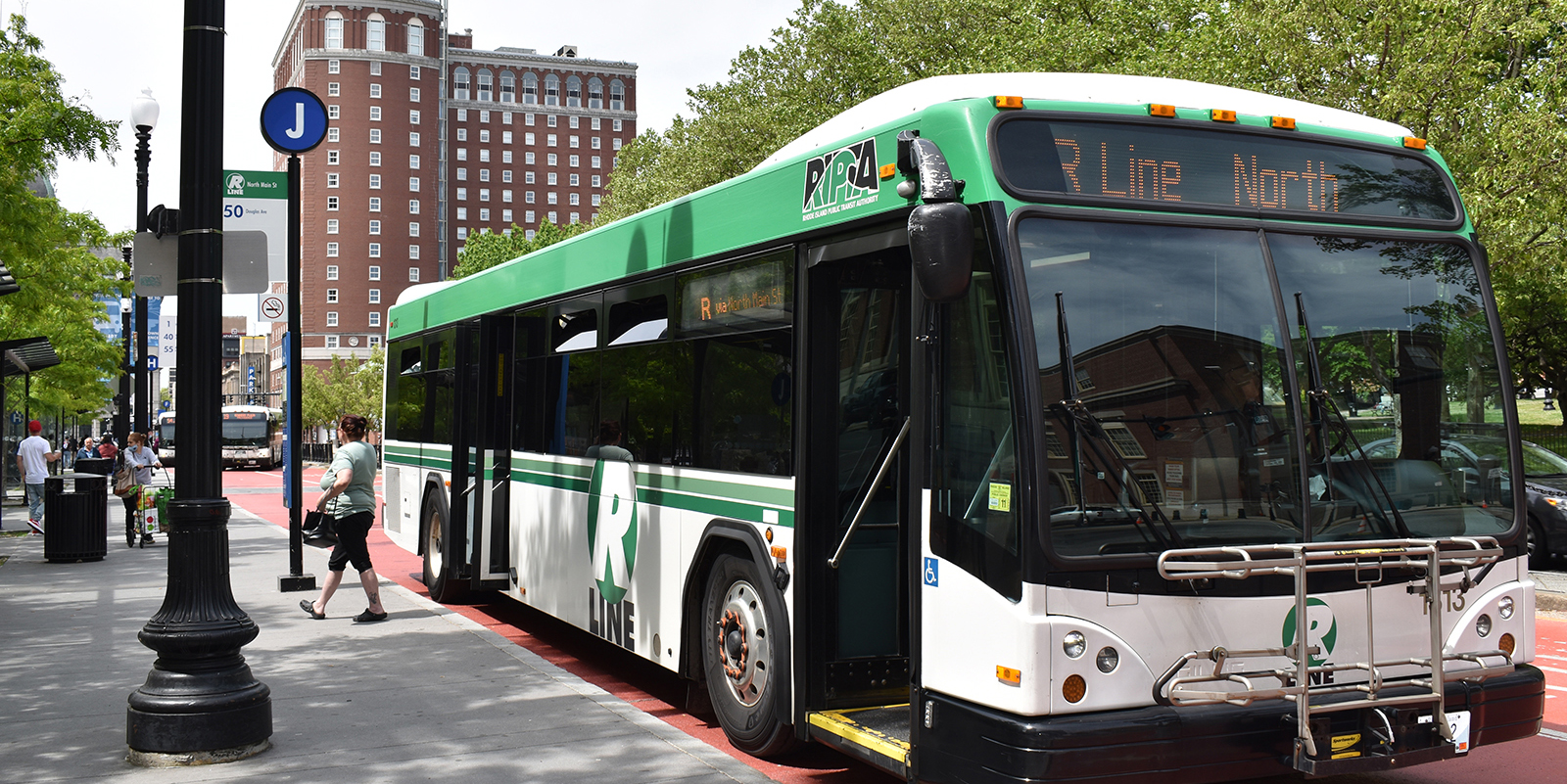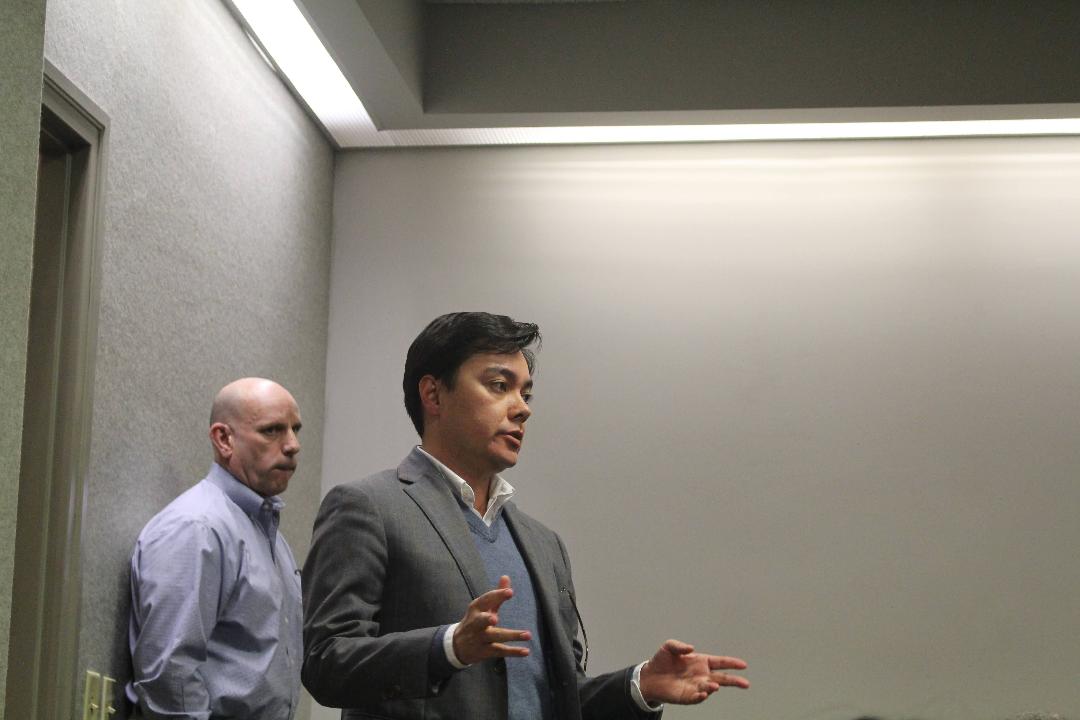Vehicle Miles Traveled Tax Proposed to Bolster R.I.’s Public Transportation
April 15, 2010
PROVIDENCE — Freedom is about choices. In Rhode Island, if you choose to live in a rural area, your freedom is curtailed by the lack of effective public transportation. Even if you don’t want to, you’ll probably have to own a car to get around. The Rhode Island Coalition for Transportation Choices wants to change that.
The coalition held a continental breakfast/press conference last week at the Rhode Island Foundation to roll out its Rhode Island policy and legislative agenda for 2010. The coalition is comprised of 31 organizations, from AARP to Working Rhode Island, that are dedicated to creating a more viable public transit system in Rhode Island.
The featured speakers were John Flaherty, co-chair of the transportation coalition, Chris Wilhite, transit expert from the Sierra Club, Sen. Lou DiPalma, D-Middletown, Rep. Art Handy, D-Cranston, and Buff Chace, developer and advocate for green building practices.
The three main initiatives of the coalition this year, which Flaherty called “a small first step to get Rhode Island on a path to a sustainable public transit system” are:
• To support investments in transportation choices and create a Rhode Island Transportation Trust Fund, which would increase the biannual auto registration fees by $40 and create a Petroleum Products Gross Receipts Tax to generate an annual total of $67 million for transportation investments.
• Research incentives to explore the feasibility of a Vehicle Miles Traveled (VMT) tax in accordance with the Governor’s Blue Ribbon Panel on Transportation Funding.
• Support passage of federal legislation which would support state transportation projects, such as federal bills to promote affordable transportation choices, economic development, and the types of walkable, vibrant communities vital to Rhode Island.
“The most prevalent problem that Rhode Island faces in developing a more viable public transit system is its method of funding,” Wilhite said.
In the current funding system, the Rhode Island Public Transit Authority (RIPTA) generates all of its revenue from the gasoline tax. In this scenario, as public transit use goes up and fewer people drive, fewer dollars are generated for the state’s public transit system.
DiPalma believes that better public transit is a quality-of-life issue. “When I first suggested the new funding structure in the Senate, I got a lot of, ‘Here we go. Another tax, another fee,’” he said. “But as I began to walk people through the bill, most said, this really makes sense.”
Road rehab is now paid for by borrowing money, through bond issues. DiPalma stressed that this continued borrowing is unsustainable. He also said that the only alternative to bond issues or toll roads and bridges, is raising and implementing these taxes.
“Pick your poison,” he said.
Handy agreed. “The VMT tax is a more equitable and accurate way to tax people on their road usage,” he said.
The VMT tax would amount to about a penny per mile, and would be charged every two years to residents when they register their vehicles. This would generate an additional $61 million for public transit and infrastructure improvements.
“I think it’s a good strategy and moves in the right direction,” Handy said, “but without federal support, in the form of aggressive legislation, most of what we might accomplish at the state level could fall flat.”
According to Chace, “Effective public transit is a competitiveness issue, when it comes to economic development. With a better public transit system, we can attract more businesses and create more and higher-paying jobs, which will, in turn, help us to retain more college students post-graduation.”
During the brief question-and-answer period after the presentation, some attendees raised questions about the VMT tax concerning people who live in and register their vehicles in Rhode Island but are employed in Massachusetts. Members of the coalition are exploring a VMT tax break for just such a situation. One local business owner said the General Assembly needs to lower the cost of doing business, by removing legal restrictions and lowering corporate taxes and thereby drawing more businesses to the state, before any of these changes can take place.
Forbes magazine recently ranked Rhode Island 50th out of 50 in business “friendliness.”
The proposed bill aims to make more roads bike and pedestrian friendly, fix and maintain roads, get more buses on the roads, expand Rhode Island’s current rail system, and to explore the possibility of creating a commuter rail that revitalizes the old Providence and Worcester railroad and connects the MBTA commuter rail stop in Franklin, Mass., to Providence, via Woonsocket and the Blackstone Valley.
The proposed new registration tax funds would be allocated thusly: $33.5 million (50 percent) for state road and bridge rehabilitation; $23.5 million (35 percent) for investments in public transit; and $10 million (15 percent) for local road rehabilitation.
That totals $67 million annually. Add to that the $61 million annually from the proposed VMT tax, and that’s a total of $128 million a year to spend on fixing roads and bolstering the state’s bus and train system.
Effective public transit, smart growth and economic development are intrinsically linked. If we, as a state, can capitalize on this link, we will be well on our way to being the best, smallest state in the country.
Categories
Join the Discussion
View CommentsYour support keeps our reporters on the environmental beat.
Reader support is at the core of our nonprofit news model. Together, we can keep the environment in the headlines.
We use cookies to improve your experience and deliver personalized content. View Cookie Settings



